- Austausch & Vernetzung
- Wissen & Lernen
- Advocacy
- Unsere Themen
Ein weiterer Hitzesommer und eine unglaubliche Dürreperiode: Solange mein Hirn noch einigermassen arbeitsfähig ist ein paar Gedanken zum Klimawandel und den gesundheitlichen Folgen. Ein gutes Dossier von Plos Medicine hilft mir beim Denken und ein paar Aspekten zusammenzutragen.
Auffallend bei der Auseinandersetzung mit dem Klimawandel und seinen Folgen auf die Gesundheit sind die Abhängigkeiten von Ursachen, Folgen und Massnahmen. Klimawandel und Gesundheit erfordert immer ein systemisches Denken – etwas, das uns als im Public-Health-Bereich tätige Menschen ja durchaus vertraut ist. Eine der wichtigsten Massnahmen gegen den Treibhauseffekt ist die massive Einschränkung fossiler Energieträger. Dies kann darauf, wie wir uns fortbewegen, massive Folgen haben. Idealerweise schränken wir den motorisierten Individualverkehr ein und bewegen uns mehr zu Fuss oder mit dem Fahrrad. Dazu braucht es weltweit neue Ansätze in der Stadtplanung. Dies hätte nicht nur einen positiven Effekt auf den Klimawandel, sondern würde auch den Kampf gegen die nicht-übertragbaren Krankheiten unterstützen.
Ein anderer systemisch geprägter Gedanke ist mir in meinen Sommerferien in Schweden gekommen: Das Land im hohen Norden leidet unter einer Hitze- und Dürreperiode, was ja für einen Touristen nicht nur unangenehm ist. Ausser man befindet sich in Stockholm in einem Hotel, das über keine Klimaanlagen in den Zimmern verfügt. Einmal abgesehen davon, dass Klimaanlagen aufgrund des notwendigen Energieverbrauchs fragwürdig sind, hat das Hotelmanagement versucht, den Gästen wenigsten Ventilatoren zur Verfügung zu stellen. Damit war der Kampf um die beschränkt vorhandenen Propellermaschinen lanciert. Glück hatte, wer zur rechten Zeit, Ventilatoren gelten machen konnte und ausserdem nicht in einem der kleinen Zimmer direkt unter dem Dach untergebracht war. Im Hotel ist damit eine Zweiklassengesellschaft entstanden: Die einen konnten die Hitze einigermassen abmildern, die anderen waren ihr schutzlos ausgesetzt.
Massnahmen, um den Klimawandel zu bewältigen und gesundheitlich einigermassen unbeschadet zu überstehen, haben auch mit der gesellschaftlichen Stellung und den ökonomischen Möglichkeiten zu tun. Eine der von Plos Medicine veröffentlichten Studien zeigt aufgrund der Cap-and-Trade-Programmes in Kalifornien zudem, dass politische Interventionen auf bereits ökonomisch und sozial benachteiligte Gemeinden gesundheitlich negative Folgen haben können – mitunter also die Ungleichheit noch verstärken können. (Lara Cushing et al: Carbon trading, co-pollutants, and environmental equity: Evidence from California’s cap-and-trade program (2011–2015); July 10, 2018, https://doi.org/10.1371/journal.pmed.1002604).
Martin Leschhorn Strebel
Netzwerk Medicus Mundi Schweiz
E-Mail
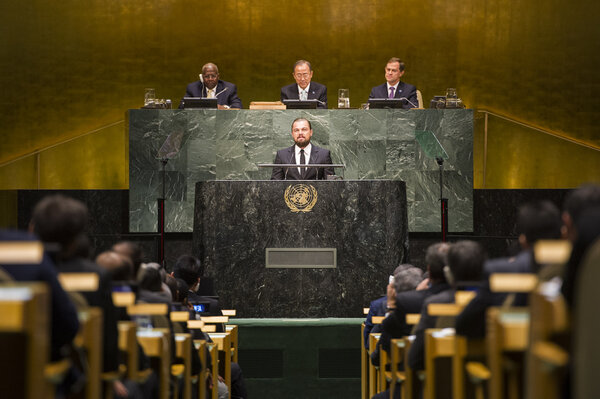
Big Alcohol, Big Oil and Big Pharma hold meeting in the heart of the UN
"Civil society groups express deep concern about presence of harmful industries at the United Nations and during the UN High-Level Political Forum on Sustainable Development. On July 12, 2018, front groups for Big Alcohol, Big Oil and Big Pharma were inexplicably granted access into the heart of the UN to host a side event as part of the official program of the UN High-Level Political Forum on Sustainable Development (HLPF)." (Photo: United Nations Photo/flickr, CC BY-NC-ND 2.0)
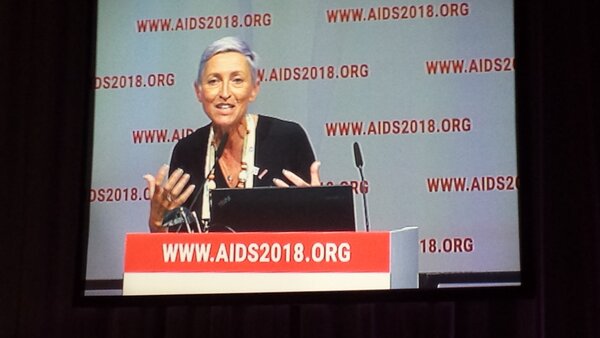
The International AIDS Society—Lancet Commission
"The sustainable development goals (SDGs) have marked a new era in global development-to strive towards a healthier, fairer, and safer world by 2030. Improving the health and well-being of the world’s people is at the core of the SDGs and attaining universal health coverage is central to those health-related goals. But even in the short time since their endorsement, there are immense and growing challenges to achieving them. The global HIV/AIDS response is not immune to this changing landscape and there are signs that the response is faltering." (Photo: AIDS2018/MMS)
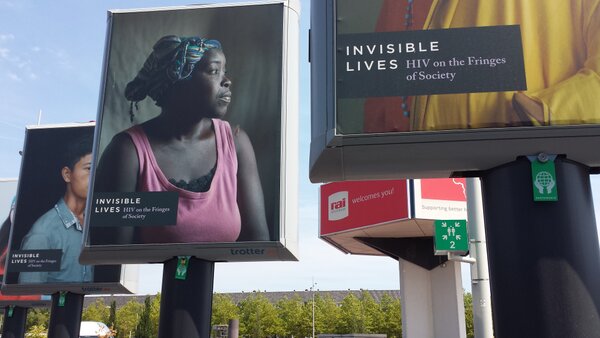
An der AIDS-Konferenz 2018 wird deutlich: UNAIDS ist im Vergleich zu den vergangenen Jahren wenig optimistisch - wir sind nicht auf Kurs! Schwindende finanzielle Mittel, nachlassendes internationales Engagement, eine regressive Politik, bei gleichzeitig ansteigenden Infektionsraten und zunehmendem Bedarf an Medikamenten - so benötigen z.B. AidspatientInnen über Jahrzehnte hinweg eine Behandlung - die Ernsthaftigkeit der Lage wird erstmals in Amsterdam diskutiert. Nehmen wir z.B. West - und Zentralafrika - diese Länder erhalten im Vergleich zum vorherigen Finanzierungszeitraum ein Drittel weniger finanzielle Unterstützung durch den Globalen Fond (GF). Ebenso wird für Mali und Sierra Leone ein Rückgang der Mittel durch den GF erwartet. Man muss sich fragen: Gehören diese Länder auch zu den Staaten mit oberem mittlerem Einkommen? (Foto: AIDS2018/MMS)
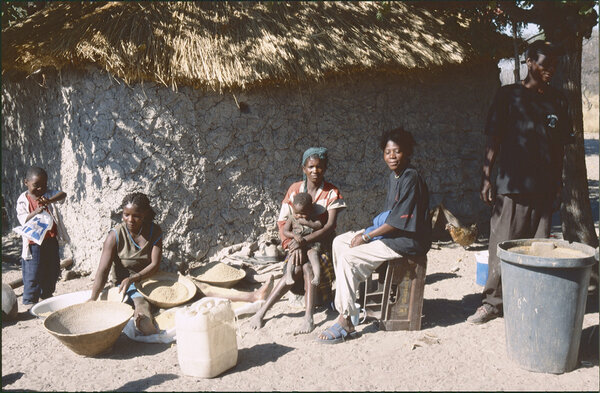
Sexuelle und reproduktive Gesundheit von Frauen
Der beschränkte Zugang für Frauen und Mädchen zu sexuellen und reproduktiven Gesundheitseinrichtungen (SRHR-Services) bleibt eine grosse Herausforderung: Dies belegen die nach wie vor hohen Zahlen an unsicheren Abtreibungen und HIV-Neuansteckungen.

James Chau asks: What are you doing to deliver for NCDs?
Very interesting and honest speech from WHO Goodwill Ambassador for SDGs and Health, James Chau in the opening panel of the Interactive Hearing on NCDs on 5 July 2018. He addresses different stakeholders and complains why so little progress has been made since the first High-Level Meeting on NCDs in 2011. (Photo: dog97209/flickr, CC BY-NC-ND 2.0)

Entrée en fonction : à discuter avec le candidat
Afin de poursuivre le développement de ses activités, EdM souhaite compléter son équipe et recherche un/e nouveau/elle: Spécialiste en santé à 80%. Entrée en fonction : à discuter avec le candidat. Lieu de travail: Genève, Grand-Saconnex. Votre mission: - Développement de programmes de formation, en présentiel et à distance; - Appui à la consolidation des systèmes de suivi et évaluation des programmes de santé. Candidatures : - Dossier complet (CV en français, lettre de motivation et certificats); - A adresser au Secrétaire général d’«Enfants du Monde » par email à : emploisante@edm.ch; - Délai pour le dépôt de candidature : 15 septembre 2018; - Les candidatures ne correspondant visiblement pas au profil ne seront pas examinées et aucune justification ne sera donnée.

Starting date: As soon as possible, flexible
SolidarMed is the Swiss organisation for health in Africa and improves health care for 1.5 million people in Lesotho, Moçambique, Tanzania, Zambia and Zimbabwe. SolidarMed sustainably strengthens and meaningfully expands existing health services. We offer an exciting position for a mid-career development professional. Based in Lucerne as part of the international program department, you will manage the country program portfolios of Zambia and Lesotho. Your tasks and responsibilities: • Strategic and thematic steering of programs and projects, together with country directors • Project and program cycle management, including planning, budgeting, monitoring, reporting, log-frame development and project document compilation • Proposal writing, institutional fundraising, key donor liaison etc. Send your CV, a short cover letter and copies of your qualifications to jobs@solidarmed.ch • Please note that SolidarMed only accepts electronic applications and will only contact shortlisted candidates • Deadline for applications: August 2018.

Full time (100%) appointment (minimum 3 years)
We have an exciting position for an experienced health professional to join our passionate team in Moçambique. We offer a fascinating up to date health project in a rural African setting and stimulating environment, linked to bilateral organizations, universities and non-governmental organizations. You will be part of a motivated team with flat hierarchies. Some of the tasks and responsibilities: • Support two districts to improve quality and coverage of HIV and nutrition related child and adolescent health services; • Support selected activities to strengthen the District Health System (infrastructure, equipment etc.); • Pilot and assess new strategies in view of potential scaling up. How to apply: Please email your application to jobs@solidarmed.ch citing reference “Child Health Clinical Manager, Moçambique 2018” Timeline for applications: August 2018
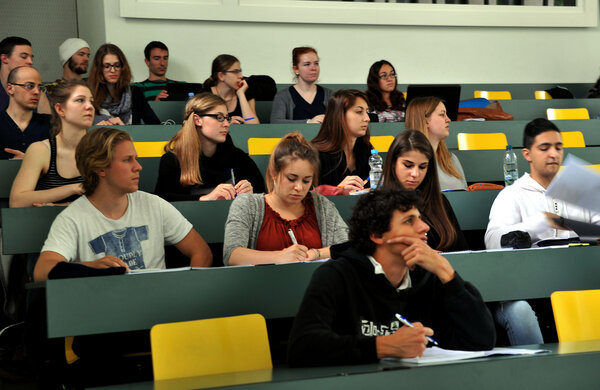
Swiss TPH The SDGs call on all of us to contribute to creating a more livable world. Swiss TPH is holding a series of 4 seminars looking at the history of the SDGs, how they are monitored and their current progress, and a debate on the advantages and more critical aspects to engaging with the 2030 Agenda. The seminars are open to all - please come along and have your say. Location: Swiss TPH, Matterhorn (Photo: Swiss TPH)
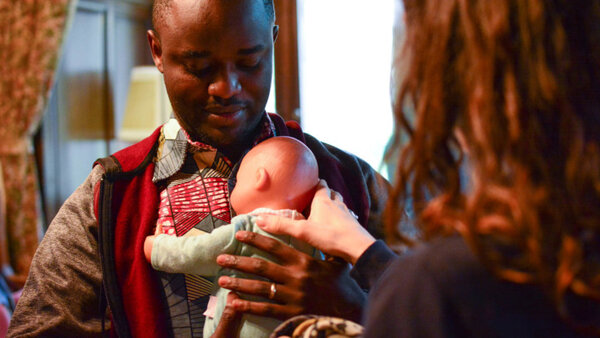
Gesellschaft Tropenpädiatrie und internationale Kindergesundheit (GTP) This 5-day-course on Tropical Paediatrics and Global Child health was initiated in 2010 and has ever since taken place and been developed further on a yearly basis. It addresses the most important medical, intercultural, political and infrastructural aspects of Global Child Health. We cordially invite you to participate in our 10th Intensive Course on Tropical Paediatrics and Global Child Health. Once again we will provide you with a diverse course schedule containing lectures, practical workshops and clinical seminar. Furthermore there will be enough time for professional international exchange of plans and experiences.
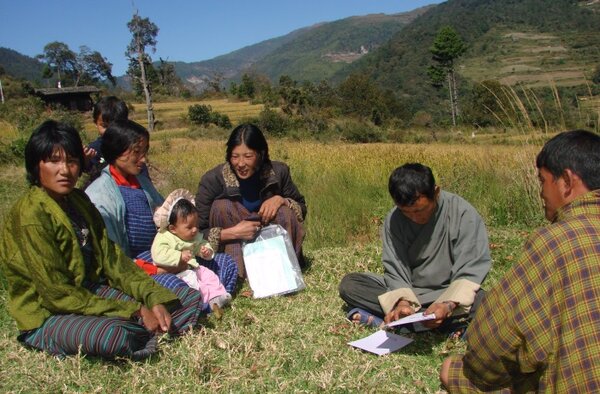
World Health Organisation (WHO) The Global Conference on Primary Health Care, co-hosted by Government of Kazakhstan, the World Health Organization and UNICEF, will take place on 25-26 October on the occasion of the 40th anniversary of the Declaration of Alma-Ata. The anniversary of this seminal milestone in global health provides an opportunity to reaffirm the principles of the original declaration and underline the importance of primary health care to achieve our collective goals for the 21st century.
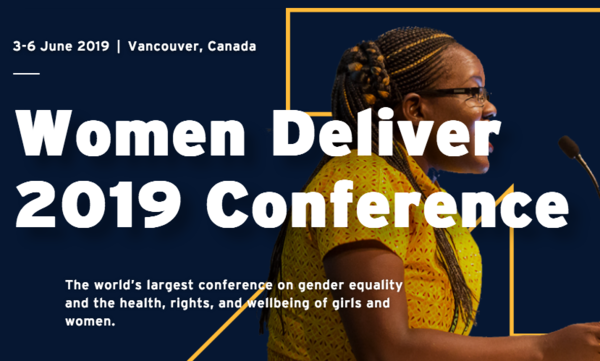
Women Deliver The world’s largest conference on gender equality and the health, rights, and wellbeing of girls and women. The Women Deliver 2019 Conference will focus on power, and how it can drive – or hinder – progress and change.
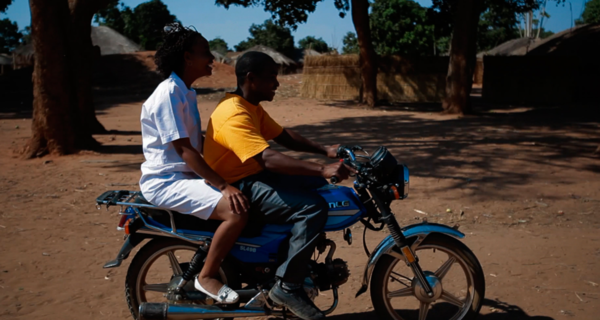
MMS Ein Dokumentarfilm über den turbulenten Weg Mosambiks im Aufbau seines öffentlichen Gesundheitssystems. "La Luta Continua" ("Der Kampf geht weiter") wurde von Medicus Mundi Catalunya und Kanaki Films 2014 produziert und befasst sich mit den Fortschritten, den Herausforderungen und Schwierigkeiten, die in Mosambik aufgetreten sind, um ein Gesundheitssystem für alle zu schaffen. Dabei nimmt der Film unterschiedliche Perspektiven ein, mit Interviews mit Funktionären und Beamten des Gesundheitsministeriums, Gebern, internationalen Organisationen und mit Vertretern der Zivilgesellschaft. Sie alle behaupten, edle Absichten zu haben, die Gesundheit der Bevölkerung zu verbessern. Mit einer Laufzeit von 40 Minuten zeigt "A Luta Continua" die Umstände und Tendenzen des Basisgesundheitskonzept (PHC) basierend auf der Alam Ata Deklaration, weit entfernt von ihrem revolutionären ursprünglichen Inhalt.
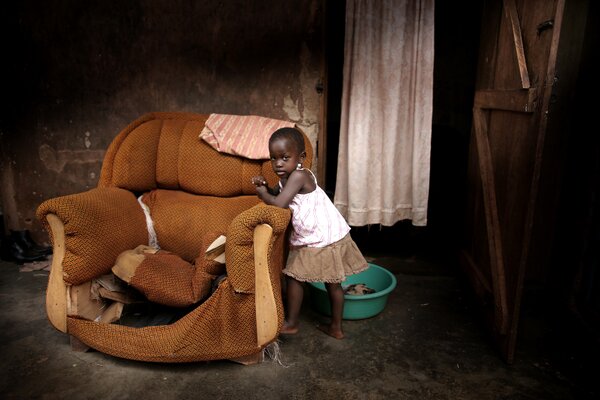
MMS Gesundheit ist ein grundlegendes Menschenrecht. Dennoch sorgen Ungleichheit, Armut, Ausbeutung, Gewalt und Ungerechtigkeit dafür, dass bis heute einer Milliarde Menschen der Zugang zu Gesundheitsversorgung verwehrt bleibt. Um das Ziel "Gesundheit für alle" zu erreichen, müssen Ungleichheiten beseitigt und Ressourcen besser verteilt werden, darf niemand ausgeschlossen werden und müssen politische und wirtschaftliche Interessen darauf ausgerichtet werden, "Gesundheit für alle" zu verwirklichen. Angesichts des 40. Jubiläums der Erklärung von Alma Ata können wir klar feststellen, dass die Vision von Alma-Ata dringender umgesetzt werden muss denn je.
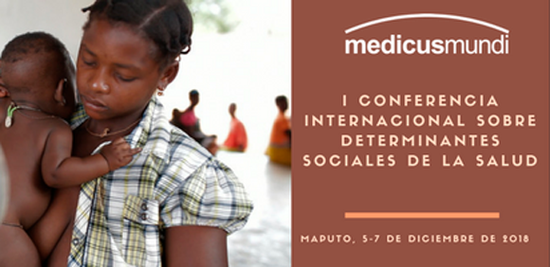
Medicus Mundi International (in) Mozambique "We want Mozambique to become a country of reference in championing Primary Health Care and to do so with scientific rigor, promoting international events for reflection and debate on how to improve PHC in the country. (...) To date, health research in Mozambique has been almost exclusively biomedical. However, we understand that the country faces challenges that go beyond this approach, and we cannot improve individual and collective health without a better understanding of the determinants that affect it. SDH can become an ideal theoretical and practical framework to reduce health inequities, particularly in Mozambique. It is in this context that medicusmundi will organize the First International Conference on Social Determinants of Health in Maputo."

Sexuelle Gesundheit Schweiz Wahrnehmung aus Sicht der Schule, der Eltern und Jugendlicher und mögliche Perspektiven für eine umfassende Sexualaufklärung in der Schweiz. Die Menschenrechte, welche sich auf die Sexualität beziehen, gelten für Kinder wie für Erwachsene und sollten Teil einer nachhaltigen Bildung (LP 21) sein. Sie sind Gegenstand des Forschungsprojekts «die sexuellen Rechte als Grundlage der Sexualaufklärung in der Schweiz», das sich in der zweiten Etappe mit der Sicht des professionellen Akteursystems der öffentlichen Schule auseinandersetzt. An dieser Tagung werden die Ergebnisse aus Umfragen mit Lehrpersonen, Fachpersonen der sexuellen Gesundheit und weiteren Involvierten im Bereich der Schulgesundheit präsentiert. Es wird aufgezeigt welche Vorstellungen die verschiedenen Akteursysteme von Sexualaufklärung basierend auf den sexuellen Rechten haben und inwiefern sie den Unterricht danach gestalten. Anmeldeschluss: 20.8.2018

ECTE The European Course in Tropical Epidemiology ECTE is 3-week intensive course on basic epidemiology and biostatistics. The course is suitable for a wide range of health professionals, including medics, nurses, biologists and anthropologists working in the health sector. The course is intended for staff working in low and middle income countries as health programme managers or with an interest in public health in tropical settings. Emphasis is on methods and the practical application of epidemiological tools in high burden-countries. Contact: organizer@ecte.org

Health Systems Global The Alma Ata vision of ‘Health for All’ remains as compelling today as it was in 1978, as reflected in goal 3 of the Sustainable Development Goals (SDGs). But the world has changed in forty years. Despite improved health outcomes, there remain extraordinary challenges for health equity and social inclusion, such as demographic and disease transitions, conflicts and their subsequent migrations, pluralistic health systems and markets, and climate change. Political systems still marginalize those most in need. Yet there are new opportunities for health systems to achieve universal coverage. The Fifth Global Symposium will advance conversations and collaborations on new ways of financing health; delivering services; and engaging the health workforce, new social and political alliances, and new applications of technologies to promote health for all.
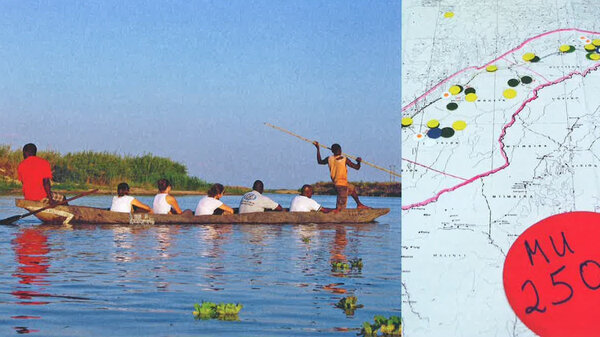
Swiss TPH The course introduces the basic principles of strategic programme and project design and management, taking into consideration local, district, national and international/global evidence and realities and health system strengthening needs. It focuses on priority setting and practical aspects of the planning and implementation process, through the use of a simulation exercise and computer based support. Designed as a refresher course for professionals working in the field of programme and project planning, design and evaluation, the course is also open to participants with a DAS Health Care and Management in Tropical Countries (or equivalent) and is an optional module within the joint Master of Advanced Study in International Health.
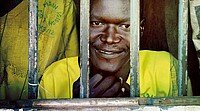
Swiss TPH Health in detention is a one-week course offered by Swiss Tropical and Public Health Institute (Swiss TPH), an associated institute of the University of Basel, in collaboration with the International Committee of the Red Cross (ICRC). This course is open to participants working in the field of health in detention, nationally or internationally, and uses a multi-disciplinary approach to bring together academia, clinical, public health and legal experts.

Swiss TPH The course is designed for physicians specialized in infectious diseases who want to expand their clinical knowledge by the spectrum of clinical tropical medicine in South East Asia. The course is offered by the Swiss Tropical and Public Health Institute (Swiss TPH), an associated institute of the University of Basel, in collaboration with the Mahosot Hospital (Vientiane, Laos); the Wellcome Trust – Mahosot Hospital – Oxford Tropical Medicine Research Collaboration; the University of Pavia, Division of Infectious and Tropical Diseases; IRCCS S. Matteo Hospital Foundation (Pavia, Italy), and the Faculty of Tropical Medicine, Mahidol University (Bangkok, Thailand).
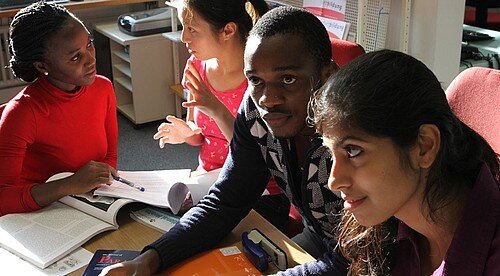
Swiss TPH Be part of a new generation of managers and leaders in global health! Swiss TPH’s part-time MBA in International Health Management is designed for working professionals who seek to acquire and deepen skills in both international health and management/administration. Selected courses can also be taken as single modules for continuing professional development. For more information, please visit https://www.swisstph.ch/en/courses/mba-ihm/ or contact courses@swisstph.ch
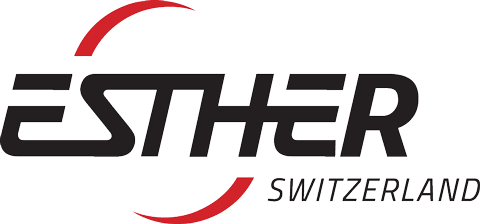
Deadline for submission: October 14th, 2018
is opening a new Call for proposals for Start-up funds. Those funds (of a max. of CHF 10’000) should promote the development of new institutional health partnerships. For more details please consult our page Grants: https://www.esther-switzerland.ch/grants/

Documentation including some videos of the presenters
On June 15th, 2018, ESTHER Switzerland organized the 2nd ESTHER Forum in Bern. It was a large event attended by more than 60 ESTHER partners.

ESTHER Switzerland hosted a Europe-wide meeting of ESTHER Alliance members and interested organisations and individuals in the capital city of Bern from the 13th to the 15th of June. These events represent an invaluable opportunity for all ESTHER stakeholders to feed back into the programme, share ideas, knowledge and experiences, and help chart a roadmap for the future of institutional health partnerships. A write-up of some of the highlights of the conference can be accessed by clicking at the link below (reported by ESTHER Ireland)
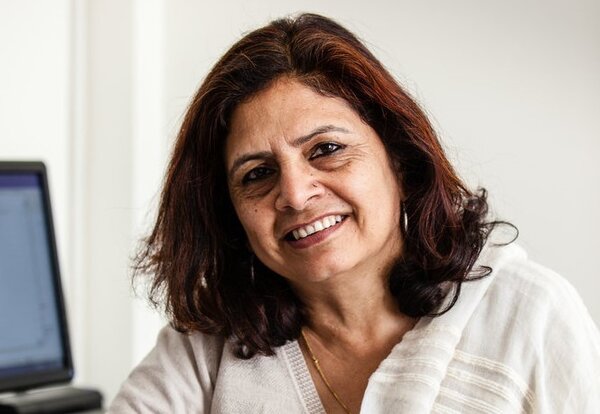
Durch die Dezentralisierung des Gesundheitssystems liegt die Verantwortung für die Umsetzung von staatlichen Programmen in Nepal neu in den Händen von regionalen Regierungsvertretern. Das Problem: Ihnen fehlt es oft an der dafür nötigen Erfahrung. Unsere Landeskoordinatorin Nirmala Sharma erklärt, wie FAIRMED bei der Lösung dieses Problems mithilft. (Foto: Nirmala Sharma steht der Dezentralisierung positiv gegenüber. © FAIRMED)
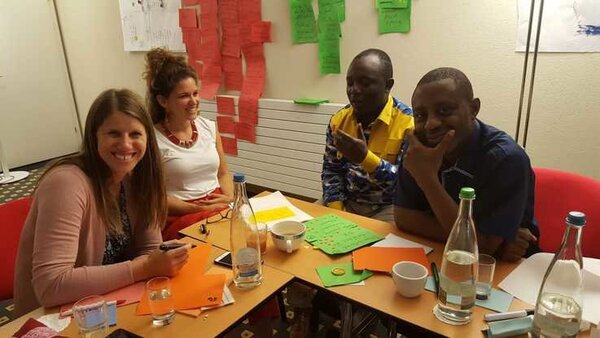
Im Zentrum der neuen Strategie steht ein ganzheitlicher Ansatz. So werden vernachlässigte Tropenkrankheiten nicht mehr einzeln, sondern als Gesamtpaket betrachtet. Erste Diskussionen zur Umsetzung der Strategie wurden Ende Juli in einem einwöchigen Meeting mit den Landesverantwortlichen in Fribourg geführt. Die Grundidee: Dort, wo solche Krankheiten vorkommen, sind die Menschen und das Gesundheitssystem vernachlässigt – egal ob es sich dabei um Lepra, Buruli oder eine andere vernachlässigte Tropenkrankheit handelt. (Foto: FAIRMED)
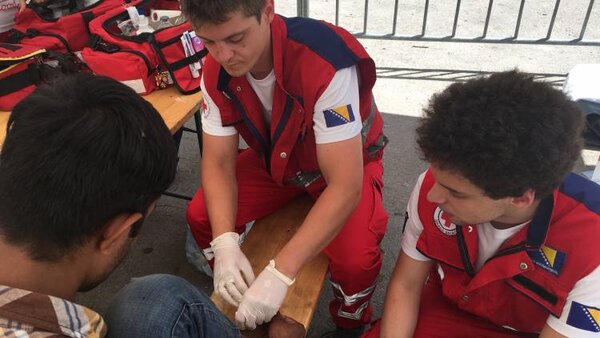
Hilfe für gestrandete Flüchtlinge in Bosnien
Seit Mai 2018 sind immer mehr Flüchtlinge auf der Balkanroute nach Bosnien und Herzegowina gelangt. Sie versuchen nach Westen in die EU zu gelangen, viele kommen aber an der Grenze zu Kroatien nicht weiter. Das SRK reagiert auf die verschärfte Situation mit einer Überbrückungshilfe für gestrandete Flüchtlinge in der Grenzregion Bihac. Über 8000 Menschen auf der Flucht sind dieses Jahr in Bosnien und Herzegowina angekommen, dies sind acht Mal mehr als 2017. Seit Mai steigen die Zahlen stark an und die Situation in den provisorischen Flüchtlingscamps verschärft sich. (Foto: Das Rote Kreuz von Bosnien und Herzegowina versorgt Verletzte, die sich auf der Flucht Wunden zugezogen haben. © IFRC, Nicole Robicheau)
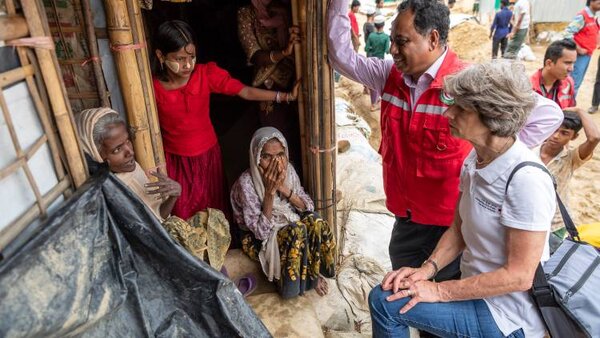
Annemarie Huber-Hotz, Präsidentin des Schweizerischen Roten Kreuzes, hat sich in Bangladesch persönlich ein Bild gemacht von der Lage in den Flüchtlingscamps im Süden des Landes. Rund eine Million Menschen sind hier auf der Flucht vor der Gewalt in Myanmar gestrandet. Elf Monate nach Beginn der Krise ist die Situation in den Camps weiterhin äusserst schwierig. Viele Menschen sind durch die Gewalt, die sie in Myanmar erfahren haben, traumatisiert. Trotz umfangreicher Nothilfe ist die Infrastruktur ungenügend, die Gesundheits- und Hygienesituation prekär. Jetzt, zur Monsunzeit, spitzt sich die Lage weiter zu. (Foto: © SRK, Remo Nägel)
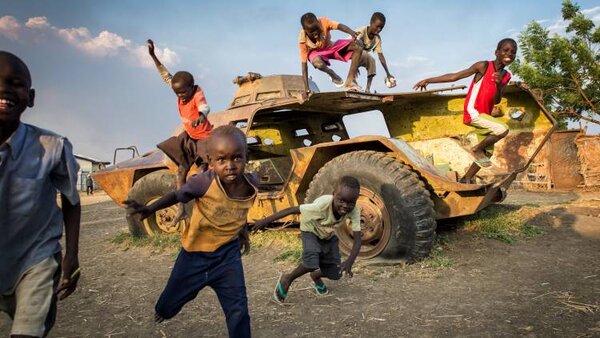
Verena Wieland über das SRK-Engagement in fragilen Ländern
Noch nie waren so viele Programmländer des SRK so instabil wie heute. Wie man in einem fragilen Kontext trotz allem weiterarbeiten kann, untersucht eine SRK-Studie am Beispiel von Gesundheitsprogrammen in Südsudan und Haiti. «Es braucht eine besondere Sensibilität, damit nicht unbeabsichtigt zusätzlicher Schaden entsteht», erläutert die SRK-Beraterin für Fragilität, Verena Wieland. (Foto: Das SRK ist seit 1998 im Südsudan aktiv und hat sein Engagement immer wieder veränderten Umständen – Konflikt, Flucht, Hungersnot – angepasst. Flexibilität und langer Atem sind Schlüsselfaktoren für wirksames Arbeiten in einem fragilen Land, zeigt die Studie „Health Programming in Fragile Contexts“. © SRK, Remo Nägel)
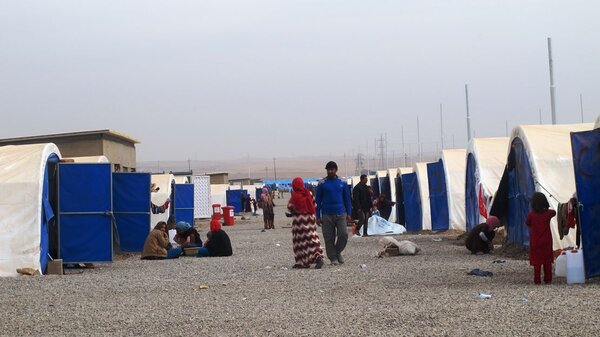
1.500 Blindgänger im Krankenhaus Al-Shifa in Mossul entdeckt, eine von Landminen und Bomben geplagte Stadt. Acht Millionen Tonnen explosiver Kriegsreste bedrohen auch ein Jahr nach der Befreiung die Stadt Mossul. Während Tausende von Verletzten versuchen, medizinische Versorgung zu bekommen und mehr als 300.000 Binnenvertriebene in Flüchtlingslagern ausharren und auf ihre Rückkehr warten, gleicht die Stadt einer Zeitbombe. (Foto: © Fanny Mraz / HI)

Klimawandel und Gesundheit
Der Klimawandel, der seit einiger Zeit unübersehbar stattfindet, hat Folgen für zahlreiche Lebensbereiche und auch direkten Einfluss auf die menschliche Gesundheit. Die Sonderausgabe von PLOS COLLECTIONS zum Thema "Klimawandel und Gesundheit" belegt u.a. wie fortschreitende extreme Hitze und Überschwemmungen nicht nur die Zunahme von nichtübertragbaren- und Infektionskrankheiten begünstigen, sondern dass vor allem vulnerable Bevölkerungsgruppen besonders betroffen sind und somit gesellschaftliche Ungleichheit fortgeschrieben wird. Lesen Sie, welche Klimaschutzmassnahmen dringend erforderlich sind. (Foto: World Bank Photo Collection/flickr, CC BY-NC-ND 2.0)